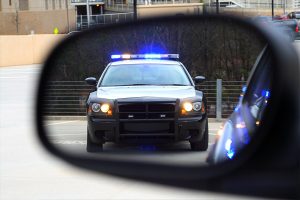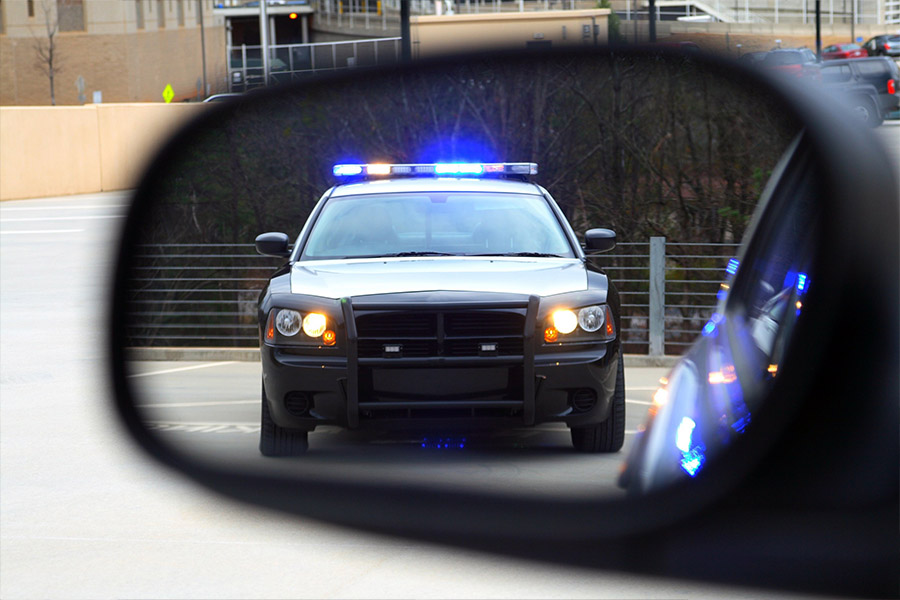Under the Fourth Amendment, the police must have probable cause you have committed a crime to arrest you. However, the Supreme Court has said that officers can stop you based on a lower standard: reasonable suspicion. But when does an officer have this reasonable suspicion to pull you over for suspected DWI?
Tad Nelson has challenged many DWI stops as illegal. In many cases, the officer had no reasonable suspicion that you were impaired. Instead, the officer simply took a chance and then went digging for evidence to use against you, often prolonging the stop unnecessarily. In that case, we can flag for the judge that the stop was illegal and seek to get your charges dismissed.
What is Reasonable Suspicion?
An officer has reasonable suspicion when, based on the officer’s training and experience, they believe a person is committing a crime. The officer should be able to point to specific facts, and not simply a “hunch,” to support the stop. The purpose of the stop is to briefly investigate whether you have really committed a crime.
We need to clarify: an officer only needs reasonable suspicion that you have committed a crime. The officer doesn’t need to believe you are driving while intoxicated to stop you. For example, the officer can stop you for a simple traffic violation. If, while investigating, they come to believe you are drunk, then the stop is not invalid.
Examples of Reasonable Suspicion
A police officer has reasonable suspicion to stop you in many situations:
- You swerve over the center line
- You are driving too slowly
- You are speeding
- You frequently hit the brakes while driving in a straight line
- You make an illegal turn
- You make a wide turn
Based on these facts, an officer has enough of a reason to suspect that you might have committed a crime. They can pull you over to perform a limited investigation.
What is Probable Cause?
Before an officer can arrest you, he or she needs probable cause. That is a higher standard than reasonable suspicion. Probable cause exists when the facts and circumstances would convince a reasonable person that you have committed a crime.
What often happens is that an officer pulls you over for suspecting you committed a crime. Immediately, the officer sees your eyes are red or your speech is slurred. Alternatively, the officer might smell pot in the car or alcohol on your breath.
Based on these new facts, the officer can continue to investigate you for DWI. You might be asked to take a field sobriety test, and if you perform poorly, the officer might arrest you or ask to take a breathalyzer test. Once you blow a high number on the test, then it follows that you will end up in cuffs since the officer has proof you are over the legal limit.
Challenging a Traffic Stop or Arrest
After reviewing the evidence, we might challenge the initial stop or your arrest.
 For example, the officer might admit they had no valid reason to stop you, or they stopped you just because they thought they knew you and wanted to talk. Because this isn’t a valid reason to put on the lights and stop a motorist, we can challenge all the evidence found after the stop: field sobriety test, statements, and breathalyzer results.
For example, the officer might admit they had no valid reason to stop you, or they stopped you just because they thought they knew you and wanted to talk. Because this isn’t a valid reason to put on the lights and stop a motorist, we can challenge all the evidence found after the stop: field sobriety test, statements, and breathalyzer results.
Similarly, we might argue the officer had no probable cause to arrest you. For example, you might have been driving with a headlight blown out. After stopping you, the officer admits that he didn’t see anything unusual in the car. You also passed the field sobriety test with flying colors. Still, the officer decides to arrest you because he thinks he saw you leaving a bar and getting into your car.
This type of arrest is illegal. There is not enough evidence to support a finding of probable cause that you were driving drunk. We can challenge the stop and ask a judge to dismiss your case.
Contact Tad Nelson for Assistance
Challenging a stop as unconstitutional is not always successful. The officer might have had solid, documented reasons to stop you. Some officers are very conscientious about doing their jobs, and they only pull people over when they have legitimate reasons for doing so.
In that case, we will need to bring other defenses. But where possible, it works in your favor to challenge a stop or arrest as illegal. Some officers are terrible witnesses and might end up providing helpful evidence to get charges dismissed. Contact Tad Nelson for help.












